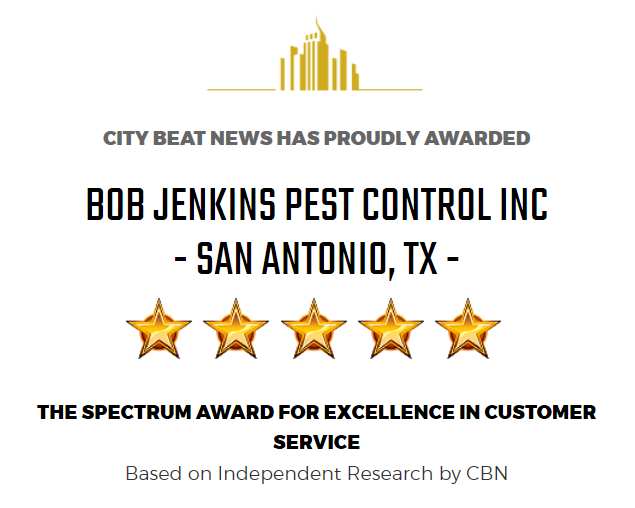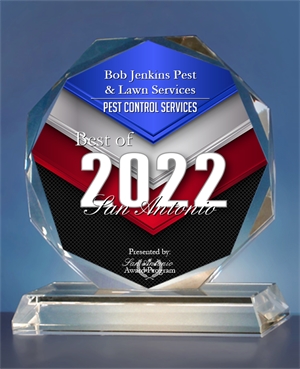Flea and Tick Control

With more than 2,000 different species of fleas, it’s no wonder they’re so abundant in San Antonio. Adult fleas are small, black to brown-black creatures without wings. They are 1-4 mm long with laterally flat bodies and strong spring-like legs capable of leaping several inches high. Fleas can survive several months without a blood meal if no host is available and adults can live for many years. Since most fleas can’t reproduce from human blood, pets or stray animals are the normal source. A common scenario is your pet gets infested in the yard then drops eggs wherever it goes in your home, usually carpets, upholstered furniture and beds. As you walk across your carpet, the motion alerts the fleas that a blood meal is available so they emerge from their cocoons as adults and start feeding on you and your pet usually biting your calves, ankles and feet.
The flea can live six months or more without feeding while the tick can go almost two years without a blood meal. To be able to properly treat a flea or tick outbreak, we need to understand these blood sucking insects.
Flea Control
Their are four stage to the life cycle of a flea: egg, larva, pupa, adult. The adult female flea can lay up to 40 eggs every day of it’s adult life and can take up to two days or two weeks to hatch. Eggs are generally laid on the pet and then distributed across a wide area as the pet moves about your home. The emerging larva will then feed on pre-digested blood or “flea dirt.” The larva will account for abut 35% of the total flea population. The next life cycle of the flea is the pupa stage. In 5-25 days, the pupae will spin a cocoon. The flea can live in this stage for several years if needed. This is one of the reasons flea control can be difficult. The cocoon protects the flea until it’s ready to emerge as an adult flea. The adult flea generally only makes up about 5% of the total flea population. Effective flea treatments require a 3 prong approach. Effective flea treatment includes attacking each life cycle of the flea in (1) the home, (2) the yard (especially the back yard), and (3) the pet, to assure elimination of a flea infestation.
Tick Control
Most ticks go through four life cycles: egg, six-legged larva, eight-legged nymph, and adult. Ticks have a complicated life and will often die because the are unable to complete their life cycle. A tick require three different types of host to complete it’s life cycle. Once a tick emerges from it’s egg as a six-legged larva, it has to elevate itself to attach to it’s first host which is generally a small bird or mouse. Once it’s gorged on blood, it drops off the host and will molt into an eight-legged nymph. It will again position itself to attach to it’s next host which needs to be a bit larger such as a skunk or raccoon. Again it will have a good blood meal and then fall to the ground and molt in the adult tick. It’s at this stage it looks to feed on a larger host such as your dog or even a human. Ticks are generally not an issue until it reaches the adult stage and most types of tick control takes place in your yard.
If your home has been invaded with fleas or ticks, Bob Jenkins Pest & Lawn Services can help eliminate these blood sucking insects.
- Mosquito Control – Home Insect Repellent
- Scorpion Control in San Antonio
- Pest Control Services – Rodents
- Have Insects Been Buggin.. You
- Termite Inspections – Termite Treatment and Control
- Carpenter Ants and the Places They Hide
- Residential Pest Control – Indoors and Outdoors
- MOSQUITOES ARE A HAZARD TO YOUR PET’S HEALTH TOO
- Identification, Facts & Control of the House Fly
- Texas, San Antonio Termite Control
- How To Get Rid Of The June Bug
- Pest Control San Antonio – New Braunfels
- Rodent Control in San Antonio
- Methods of Termite Control
- Texas, San Antonio Termite Control
- New Braunfels Pest Control
- Maintenance Tips For Flea And Tick Season
- Helpful Tips On Flea Control and Prevention
- Termite Control And Treatment San Antonio
- Inspect Your Home For Termites This Spring
- Maintenance Tips For Flea And Tick Season
- Gardening Tips To Keep The Pests At Bay This Spring
- What Is Humane Animal Control?
- Stop The Pests: Room By Room Spring Cleaning Guide
- Summer Pest Control For Common Pests














